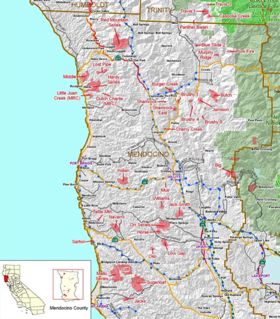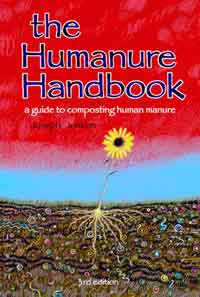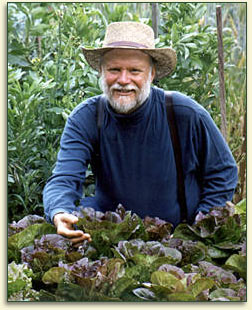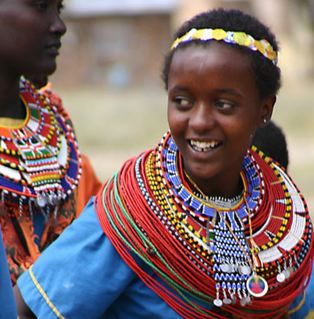 In Mendocino County recently, on a day when the smoke from the hundreds of still-burning forest fires was relatively tolerable, I walked through a nearly deserted city park in Willits with my son and my brother and noticed two black men lunching at a distant picnic table. From previous conversations with my brother, a double-decade Willits resident, I knew the town’s demographics: two black men were entirely anomalous…and therefore, intriguing. Originally on a tack that would pass them at an impersonal distance, our stroll was drawn closer by their African garb. On the edge of the table was a book, so my brother opened the conversation, “What’re you reading?”
In Mendocino County recently, on a day when the smoke from the hundreds of still-burning forest fires was relatively tolerable, I walked through a nearly deserted city park in Willits with my son and my brother and noticed two black men lunching at a distant picnic table. From previous conversations with my brother, a double-decade Willits resident, I knew the town’s demographics: two black men were entirely anomalous…and therefore, intriguing. Originally on a tack that would pass them at an impersonal distance, our stroll was drawn closer by their African garb. On the edge of the table was a book, so my brother opened the conversation, “What’re you reading?”
They looked up, and one of them lifted the book: The Humanure Handbook by Joseph Jenkins.  With a British-influenced, African accent, he offered flatly, “It explains how to use excrement and such in sustainable farming.”
With a British-influenced, African accent, he offered flatly, “It explains how to use excrement and such in sustainable farming.”
“Good idea,” I said.
“Did you know,” my brother continued, “that here in Willits we have one of the world’s foremost authorities on sustainable, biointensive farming? John Jeavons.”
“Oh, yes,” said the other man. “We are both apprentices on his farm.”
Smiling sheepishly at our coals-to-Newcastle overture, we soon learned that the men, no older than 30, were from Kenya, and had come to study for six months under Jeavons’ tutelege. After inviting ourselves to sit with them, we asked many questions. They, David and Philip, had excellent answers.
On farming:
“It is possible, and that is what we are learning, ” David said, “to grow enough food to sustain one person for a year on less than 1/25 of a hectare, just 4,000 sq. ft. of land.”
I did a quick mental calculation: a plot 50×80 feet…that’s less than one-tenth of an acre!
Philip pointed to the remains of the lunch that they had just finished: corn, beans, and other vegetables…all grown on Jeavons’ teaching farm. His sustainable cropping system enables people in all regions of the world to grow a balanced diet on a conceivably-sized plot of land. And it doesn’t have to be great farm land, either. The fertility of Willits soil is only average. Coupled with long dry summers, the land provides a fair base on which to train acolytes who will return to their countries with valuable and transmittable skills.
On democracy in Africa:
“Colonial governments did nothing that would encourage democracies once they left. Our country, Kenya,
was created by the British in 1963. Entirely artificial borders. We have 42 tribes. Different cultures. Men from tribes that were not friendly for hundreds of years were suddenly made into Kenyan citizens with supposedly common interests.”
I asked if the traditionally hierarchical structure of tribal governance (a Big Man at the top who manages everything and is responsible for everyone) was an inherent bar to democracy.
David nodded. “People trust their chiefs to take care of them. They expect that the chief will get the most, but his power comes from the people, so he must give enough downward to keep the people happy.” He went on to explain that the Big Man construct leads inexorably to corruption and favoritism, but that the people put up with it because they are not culturally accustomed to equality. “And that,” David continued, “makes democracy very difficult to achieve in sub-Saharan Africa.”
Philip added, “It is foolish for other countries—“
“Like Bush/Cheney America?” I interposed.
He nodded gravely, “—to think that democracy can be forced upon people not prepared for it. It will take generations to create a democracy like America’s. Even now, the Kenyan tribes, all of which
have representatives in our government, still squabble over everything. But there is a new tribe that has been created in Kenya. I am of a different tribe than David, and in public our two representatives will argue and oppose each other over economic matters and land. But in private they are both members of that new tribe: the tribe of rich men who control everything for their own benefit.”
Perhaps it is already like America.







One Comment on “Kenya in Willits”
It took decades for America to become a democracy (if it ever truly did — I think we are more of a corporate oligarchy). But in 1776 America was still in reality a gentleman’s society with aristocratic mores. It took a few generations to change that.
Comments are closed.